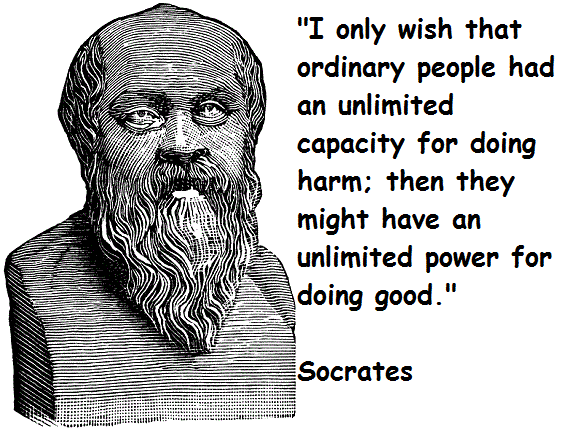
Today, we live in a time when people talk about anything, write or otherwise convey untruths, half-truths, and sometimes gross lies. The desire for some kind of primitive sensationalism has been raised to the level of global sport, so people are spending more and more time in tracking others, finding or inventing their flaws, attributing people with traits they do not have at all.
Although it is a waste of time because it does not bring any good (Wasted time should have been spent to work on its own progress, and thus the progress of a community).
People who deal with it are classified as tiny souls and mostly they live very unhappy and miserable because their inner frustration and bitterness do not allow any form of progress.
At the beginning, it's always just a word. It sounds harmless, but the word is like a hammer, and for each pronounced word man will be responsible.
2500 years ago, people defined this problem and found the ingenious and easy solution they called the Three Sifter Test!
I'm transferring the story as follows:
Socrates was known as a wise man. One day a man was looking for him and said,
"Do you know what I've heard about your friend?"
"Moment," Socrates answered, "before you tell me I'd like to pass you through a quick test. Did you sift what you want to say through three sifters? "
"Three sifters?"
"Yes," Socrates answered, "before you tell me something about somebody, it's a good idea to take some time and sift through what you want to say. That's what I call a three-sifter test! First is the sifter of TRUTH.
Have you checked if it's the truth what you want to say? "
"No, I did not. I did not see it, I just heard people talking. "
'Good! You do not know if that is true. Let's try again: try to sift differently, now we will take the sifter of GOODNESS.
What you want to tell me about a friend is it something good? "
"No, quite the opposite! I've heard bad things about your friend. "
"So," Socrates continued, "you want to tell me bad things about a friend, and you're not sure if it is true. That is not very encouraging! You can still pass the test, because there is one more sifter, sifter of VALUE.
Is it useful to tell me all that bad that my friend did? "
"Useful? Well, no, I do not believe you could use it. "
"So," concluded Socrates, "what you want to tell is not Truth, neither Good nor Useful, so why would you tell me that? I do not want to know anything about what you want to tell me, and you'd better forget it all. "
By: Plato; 2 500 years ago
The spoken word is like an arrow that has no return. So let's be the masters of our words, so that we will not become slaves of our negative habits and procedures.
